|
Books Should Be Free Loyal Books Free Public Domain Audiobooks & eBook Downloads |
|
|
Books Should Be Free Loyal Books Free Public Domain Audiobooks & eBook Downloads |
|
Non-fiction |
|---|
|
Book type:
Sort by:
View by:
|
By: Thomas Barker (fl. 1651) | |
|---|---|
 The Art of Angling Wherein are discovered many rare secrets, very necessary to be knowne by all that delight in that recreation
The Art of Angling Wherein are discovered many rare secrets, very necessary to be knowne by all that delight in that recreation
| |
By: Thomas Barlow Wood (1869-1929) | |
|---|---|
 Story of a Loaf of Bread
Story of a Loaf of Bread
According to the author in the preface, he has "ventured to write this little book with some diffidence, for it deals with farming, milling and baking, subjects on which everyone has his own opinion." The earlier chapters give a brief sketch of the growing and marketing of wheat, followed by chapters on various aspects that impact the quality of wheat, the baking process and the characteristic of the final product, bread. The author aimed at making the reader realise that the farmer’s share in the production of the staple food of the people is by no means the simple affair it appears to be. - Summary by Leni | |
By: Thomas Browne | |
|---|---|
 Religio Medici and Hydriotaphia
Religio Medici and Hydriotaphia
Religio Medici (The Religion of a Doctor) sets out Sir Thomas Browne's spiritual testament as well as being an early psychological self-portrait. In its day, the book was a European best-seller. It was published in 1643 by the newly-qualified physician, and its unorthodox views placed it swiftly upon the Papal Index Librorum Prohibitorum in 1645. Although predominantly concerned with Christian faith, the Religio also meanders into digressions upon alchemy, hermetic philosophy, astrology, and physiognomy... | |
By: Thomas Carlyle | |
|---|---|
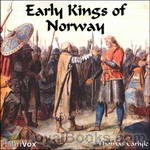 Early Kings of Norway
Early Kings of Norway
“The Icelanders, in their long winter, had a great habit of writing; and were, and still are, excellent in penmanship. It is to this fact, that any little history there is of the Norse Kings and their old tragedies, crimes and heroisms, is almost all due. The Icelanders, it seems, not only made beautiful letters on their paper or parchment, but were laudably observant and desirous of accuracy; and have left us such a collection of narratives (Sagas, literally “Says”) as, for quantity and quality, is unexampled among rude nations... | |
By: Thomas de Quincey (1785-1859) | |
|---|---|
 Miscellaneous Essays
Miscellaneous Essays
The Hunter Thompson of the 19th Century, de Quincey is best known for his Confessions of an English Opium Eater (an activity shared with his hero, Samuel Coleridge, much to Wordsworth’s dismay). However, de Quincey’s literary genius is best captured in his essays, and, according to Wikipedia: His immediate influence extended to Edgar Allan Poe, Fitz Hugh Ludlow and Charles Baudelaire, but even major 20th century writers such as Jorge Luis Borges admired and claimed to be partly influenced by his work. | |
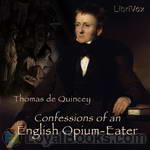 Confessions of an English Opium-Eater
Confessions of an English Opium-Eater
“Thou hast the keys of Paradise, O just, subtle, and mighty Opium!” Though apparently presenting the reader with a collage of poignant memories, temporal digressions and random anecdotes, the Confessions is a work of immense sophistication and certainly one of the most impressive and influential of all autobiographies. The work is of great appeal to the contemporary reader, displaying a nervous (postmodern?) self-awareness, a spiralling obsession with the enigmas of its own composition and significance... | |
By: Thomas Dowler Murphy (1866-1928) | |
|---|---|
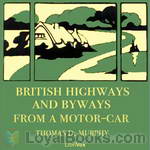 British Highways And Byways From A Motor Car
British Highways And Byways From A Motor Car
In this chronicle of a summer's motoring in Britain I have not attempted a guide-book in any sense, yet the maps, together with the comments on highways, towns, and country, should be of some value even in that capacity. I hope, however, that the book, with its many illustrations and its record of visits to out-of-the way places, may be acceptable to those who may desire to tour Britain by rail or cycle as well as by motor car. Nor may it be entirely uninteresting to those who may not expect to visit the country in person but desire to learn more of it and its people. (Introduction by Thomas Dowler Murphy) | |
By: Thomas D’Arcy McGee | |
|---|---|
 Popular History of Ireland
Popular History of Ireland
Book 1: Thomas D’Arcy McGee was an Irish refugee and a father of the Canadian confederation. His work on Irish history is comprehensive, encompassing twelve books; Book 1 begins with the earliest modern settlement of Ireland and ends with the 8th century. | |
By: Thomas Forsyth Hunt (1862-1927) | |
|---|---|
 The Young Farmer: Some Things He Should Know
The Young Farmer: Some Things He Should Know
| |
By: Thomas Gilbert Pearson (1873-1943) | |
|---|---|
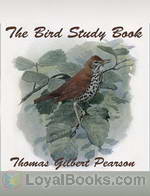 The Bird Study Book
The Bird Study Book
Do you enjoy birdwatching? Would you like to learn a little more about the early conservations efforts to protect wild birds? In the Preface to The Bird Study Book, Pearson tells us “This book was written for the consideration of that ever-increasing class of Americans who are interested in acquiring a greater familiarity with the habits and activities of wild birds. Attention is also given to the relation of birds to mankind and the effect of civilisation on the bird-life of the country. ” An avid ornithologist, T... | |
By: Thomas H. Burgoyne (1855-1894) | |
|---|---|
 The Light of Egypt, vol II
The Light of Egypt, vol II
"The Light of Egypt" will be found to be an Occult library in itself, a textbook of esoteric knowledge, setting forth the "wisdom Religion" of life, as taught by the Adepts of Hermetic Philosophy. It will richly repay all who are seeking the higher life to carefully study this book, as it contains in a nutshell the wisdom of the ages regarding man and his destiny, here and hereafter. The London and American first edition, also the French edition, Vol. I, met with lively criticism from Blavatsky Theosophists, because it annihilates that agreeable delusion of "Karma" and "Reincarnation" from the minds of all lovers of truth for truth's sake. | |
By: Thomas Henry Huxley (1825-1895) | |
|---|---|
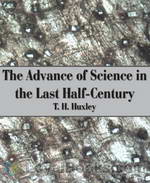 The Advance of Science in the Last Half-Century
The Advance of Science in the Last Half-Century
Thomas H. Huxley, an English biologist and essayist, was an advocate of the theory of evolution and a self-proclaimed agnostic. A talented writer, his essays helped to popularize science in the 19th century, and he is credited with the quote, “Try to learn something about everything and everything about something.” In The Advance of Science in the Last Half Century, he presents a summary of the major developments in Physics, Chemistry and Biology during the period 1839-1889 and their impact on society, within the historical context of philosophical thought and scientific inquiry going back to Aristotle... | |
By: Thomas Hobbes (1588-1679) | |
|---|---|
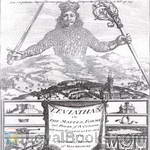 Leviathan, or The Matter, Forme and Power of a Common Wealth Ecclesiasticall and Civil
Leviathan, or The Matter, Forme and Power of a Common Wealth Ecclesiasticall and Civil
Books 1 and 2. Leviathan, or The Matter, Forme and Power of a Common Wealth Ecclesiasticall and Civil is a book written in 1651 by Thomas Hobbes. The book concerns the structure of society (as represented figuratively by the frontispiece, showing the state giant made up of individuals). In the book, Hobbes argues for a social contract and rule by a sovereign. Influenced by the English Civil War, Hobbes wrote that chaos or civil war – situations identified with a state of nature and the famous motto bellum omnium contra omnes (”the war of all against all”) – could only be averted by strong central government... | |
By: Thomas J. Murrey | |
|---|---|
 Fifty Soups
Fifty Soups
| |
 Fifty Salads
Fifty Salads
| |
 Breakfast Dainties
Breakfast Dainties
| |
By: Thomas Kelly Cheyne (1841-1915) | |
|---|---|
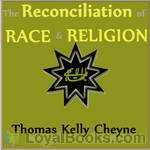 The Reconciliation of Races and Religions
The Reconciliation of Races and Religions
“The primary aim of this work is twofold,” writes Thomas K. Cheyne. “It would fain contribute to the cause of universal peace, and promote the better understanding of the various religions which really are but one religion. The union of religions must necessarily precede the union of races, which at present is so lamentably incomplete…. I have endeavoured to study the various races and religions on their best side, and not to fetter myself to any individual teacher or party, for ‘out of His fullness have all we received... | |
By: Thomas R. Malthus (1766-1834) | |
|---|---|
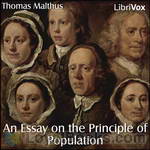 An Essay on the Principle of Population
An Essay on the Principle of Population
The power of population is indefinitely greater than the power in the earth to produce subsistence for man. Population, when unchecked, increases in a geometrical ratio. Subsistence increases only in an arithmetical ratio. A slight acquaintance with numbers will show the immensity of the first power in comparison with the second (Malthus). | |
By: Thomas Shaw (1843-1918) | |
|---|---|
 Clovers and How to Grow Them
Clovers and How to Grow Them
| |
By: Thomas Southwood Smith (1788-1831) | |
|---|---|
 Use Of The Dead To The Living
Use Of The Dead To The Living
In 1827 Thomas Southwood-Smith published The Use of the Dead to the Living, a pamphlet which argued that the current system of burial in the United Kingdom was a wasteful use of bodies that could otherwise be used for dissection by the medical profession. "If, by any appropriation of the dead, I can promote the happiness of the living, then it is my duty to conquer the reluctance I may feel to such a disposition of the dead, however well-founded or strong that reluctance may be". Southwood-Smith's lobbying helped lead to the 1832 Anatomy Act, the legislation which allowed the state to seize unclaimed corpses from workhouses and sell them to surgical schools... | |
By: Thomas Stanley Treanor | |
|---|---|
 Heroes of the Goodwin Sands
Heroes of the Goodwin Sands
| |
By: Thomas Stevens (1854-1935) | |
|---|---|
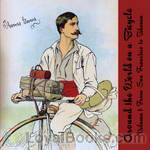 Around the World on a Bicycle, Vol. 1
Around the World on a Bicycle, Vol. 1
Thomas Stevens was the first person to circle the globe by bicycle, a large-wheeled Ordinary. His journey started in April 1884 in San Francisco from where he cycled to Boston to take a steamer to England. Crossing England, France, Central Europe and Asia Minor before he was turned back at the borders of Afghanistan. He returned part of the way to take a ship to Karachi, from where he crossed India. Another steam ship brought him from Calcutta to Hong Kong, and from Shanghai he set over to Japan, finally ending his journey after actually cycling 13... | |
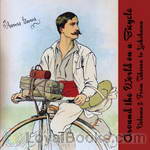 Around the World on a Bicycle, Vol. 2
Around the World on a Bicycle, Vol. 2
Thomas Stevens was the first person to circle the globe by bicycle, a large-wheeled Ordinary. His journey started in April 1884 in San Francisco from where he cycled to Boston to take a steamer to England. Crossing England, France, Central Europe and Asia Minor before he was turned back at the borders of Afghanistan. He returned part of the way to take a ship to Karachi, from where he crossed India. Another steam ship brought him from Calcutta to Hong Kong, and from Shanghai he set over to Japan, finally ending his journey after actually cycling 13... | |
By: Thomas Troward (1847-1916) | |
|---|---|
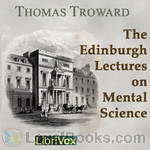 The Edinburgh Lectures on Mental Science
The Edinburgh Lectures on Mental Science
Thomas Troward was a divisional Judge in British-administered India. His avocation was the study of comparative religion. Influences on his thinking, as well as his later writing, included the teachings of Christ, Islam, Hinduism, and Buddhism. After his retirement from the judiciary in 1896, Troward set out to apply logic and a judicial weighing of evidence in the study of matters of cause and effect. The philosopher William James characterized Troward’s Edinburgh Lectures on Mental Science as "far and away the ablest statement of philosophy I have met, beautiful in its sustained clearness of thought and style, a really classic statement... | |
By: Thomas Watkins | |
|---|---|
 The art of promoting the growth of the cucumber and melon in a series of directions for the best means to be adopted in bringing them to a complete state of perfection
The art of promoting the growth of the cucumber and melon in a series of directions for the best means to be adopted in bringing them to a complete state of perfection
| |
By: Thomas Wentworth Higginson | |
|---|---|
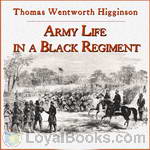 Army Life in a Black Regiment
Army Life in a Black Regiment
These pages record some of the adventures of the First South Carolina Volunteers, the first slave regiment mustered into the service of the United States during the late civil war. It was, indeed, the first colored regiment of any kind so mustered, except a portion of the troops raised by Major-General Butler at New Orleans. These scarcely belonged to the same class, however, being recruited from the free colored population of that city, a comparatively self-reliant and educated race. (From the text) | |
By: Thomas Wilson Lambert | |
|---|---|
 Fishing in British Columbia With a Chapter on Tuna Fishing at Santa Catalina
Fishing in British Columbia With a Chapter on Tuna Fishing at Santa Catalina
| |
By: Thornton W. Burgess (1874-1965) | |
|---|---|
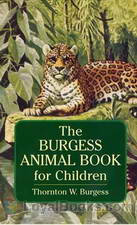 The Burgess Animal Book for Children
The Burgess Animal Book for Children
Peter Rabbit goes to school, with Mother Nature as his teacher. In this zoology book for children, Thornton W. Burgess describes the mammals of North America in the form of an entertaining story, including plenty of detail but omitting long scientific names. There is an emphasis on conservation. | |
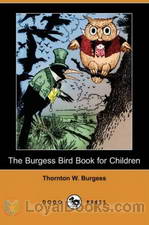 The Burgess Bird Book for Children
The Burgess Bird Book for Children
The Burgess Bird Book for Children is a zoology book written in the form of a story featuring Peter Rabbit. Peter learns from his friend Jenny Wren all about the birds of North America, and we meet many of them in the Old Orchard, the Green Meadow, and the Green Forest. | |
By: Thorstein Veblen (1857-1929) | |
|---|---|
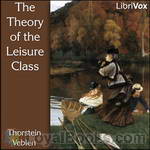 The Theory of the Leisure Class
The Theory of the Leisure Class
Originally published by the Norwegian-American economist Thorstein Veblen while he was a professor at the University of Chicago in 1898, the Theory of the Leisure Class is considered one of the great works of economics as well as the first detailed critique of consumerism. In the book, Veblen argues that economic life is driven not by notions of utility, but by social vestiges from pre-historic times. [Summary modified from Wikipedia.] | |
By: Thucydides (Θουκυδίδης) (c. 460-395) | |
|---|---|
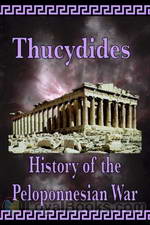 The History of the Peloponnesian War
The History of the Peloponnesian War
The History of the Peloponnesian War is an account of the Peloponnesian War in Ancient Greece, fought between the Peloponnesian League (led by Sparta) and the Delian League (led by Athens) in the 5th Century BC. It was written by Thucydides, an Athenian general who served in the war. It is widely considered a classic and regarded as one of the earliest scholarly works of history. The History is divided into eight books. These book divisions are the work of editors in later antiquity. W. R. Connor [...] describes Thucydides as “an artist who responds to, selects and skillfully arranges his material, and develops its symbolic and emotional potential.” | |